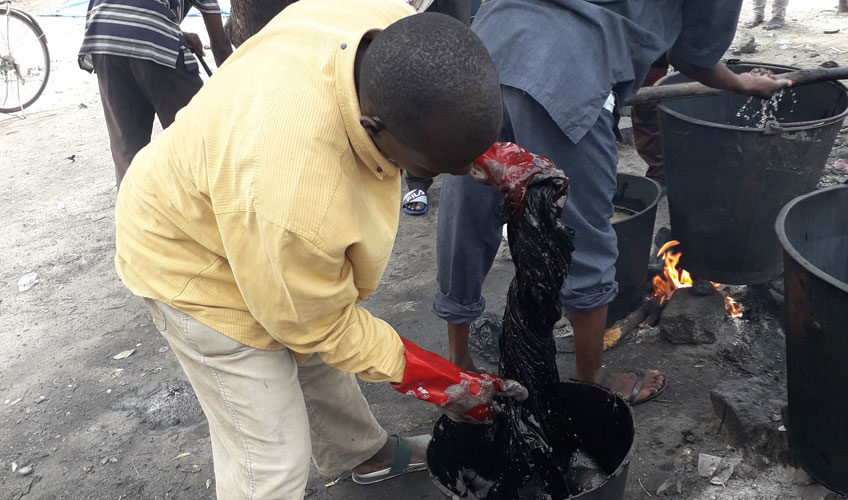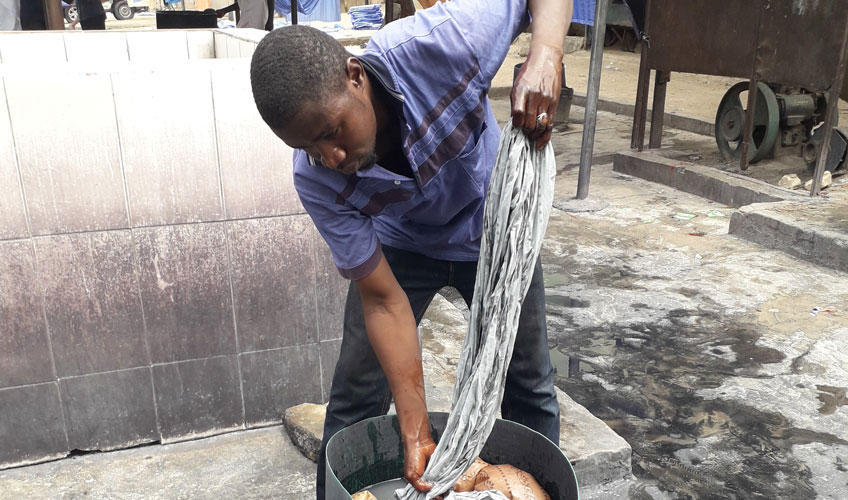Forsaking old ways: Bukar and Alai’s story
As Shehuri South in Maiduguri, played host to Internally Displaced Persons (IDPs), dealing with the pressures that bought, it was also plagued by drug abuse within the community.
The youth increasingly turned to drugs for psychological escape, which threatened the peace and security of the community. Their addiction not only deteriorated their health but the young people began engaging in nefarious activities like theft, burglary and thuggery to feed their addiction.

International Alert’s ‘Ido da Ido’ project includes a monthly Peace Forum, a security roundtable between the Civilian Joint Task Force (CJTF) and community leaders where all parties can discuss relevant peace and security issues affecting the community. Drug abuse and related crimes continually topped the agenda of the meetings with two drug dealers in Shehuri South, Bukar Abba and Alai Usman, constantly being mentioned. Therefore, the Peace Forum decided to invite Bukar and Alai to the platform to talk about about and find a way to stop them dealing drugs and instead take on livelihoods that are more respectful and sustainable. The reason Bukar and Alai were singled out was because they held measurable influence amongst traffickers and dealers in Shehuri South.

“The discussions we had with the CJTF and community leaders have enlightened me, I never thought selling drugs would promote insecurity until they made it clear to us. I now enjoy my new job, it earns me respect. Tie dye is also more profitable,” says Alai.
Bukar goes on to tell us, “we agreed to stop selling drugs on the condition that we would be provided with new jobs. Besides, the money we make from selling drugs is not ours and we have families to take care of too. CJTF Unit Commander of Shehuri South, Ba Adam, agreed to accept us into his local tie dye business. It has been more than 2 months since this agreement took place and we have not gone back to selling drugs. We now work in his factory and earning a living.”
Since working in a local business and helping the local economy, social perceptions towards these young men has improved as Bukar confirms:
This is one of the best decisions I ever made. Once people realised that I stopped selling drugs, I gained their respect and they are more friendly now.
And, it is not only Bukar and Alai who have experienced peace of mind. Lawan Asheikh, an influential leader in Shehuri South who participates in the Peace Forum says, “since Alai and Bukar stopped selling illegal drugs our people have been very happy. I pray they continue to enjoy their new work.”
For Ba Adam, participating in the Ido da Ido project has helped to improve the relationship between his sector unit and the people they are there to protect. It has promoted community dialogue and promoted peaceful and collaborative relationships in the community. He has also accepted his dual roles excitedly.
My colleagues in the tie dye business are very excited that Bukar Abba and Alai Usman stopped dealing drugs to come work at my factory. I mentor them, I encourage them and I give them a livelihood so they don’t turn back to dealing drugs – thanks to International Alert.
About the project
Ido da Ido (Face to face) promoted peaceful relationships between communities and formalised vigilante groups, formally referred to as Civilian Joint Task Forces (CJTF), by promoting their positive roles as community peacekeepers in northeast Nigeria. The project was implemented in Maiduguri metropolitan council and some parts of Jere LGA in Borno state.
The project led to a shift of the community’s negative perspective of the role of the CJTF, with 98% of women and 91% of men confirming there was now a positive relationship between CJTF and their communities. Alert facilitated the development of a code of conduct for CJTF members. In June 2019, a CJTF member was arrested for acts of torture, and was promptly reprimanded based on the provisions of the code of conduct.
Ido da Ido was funded by the French Embassy in Nigeria.






